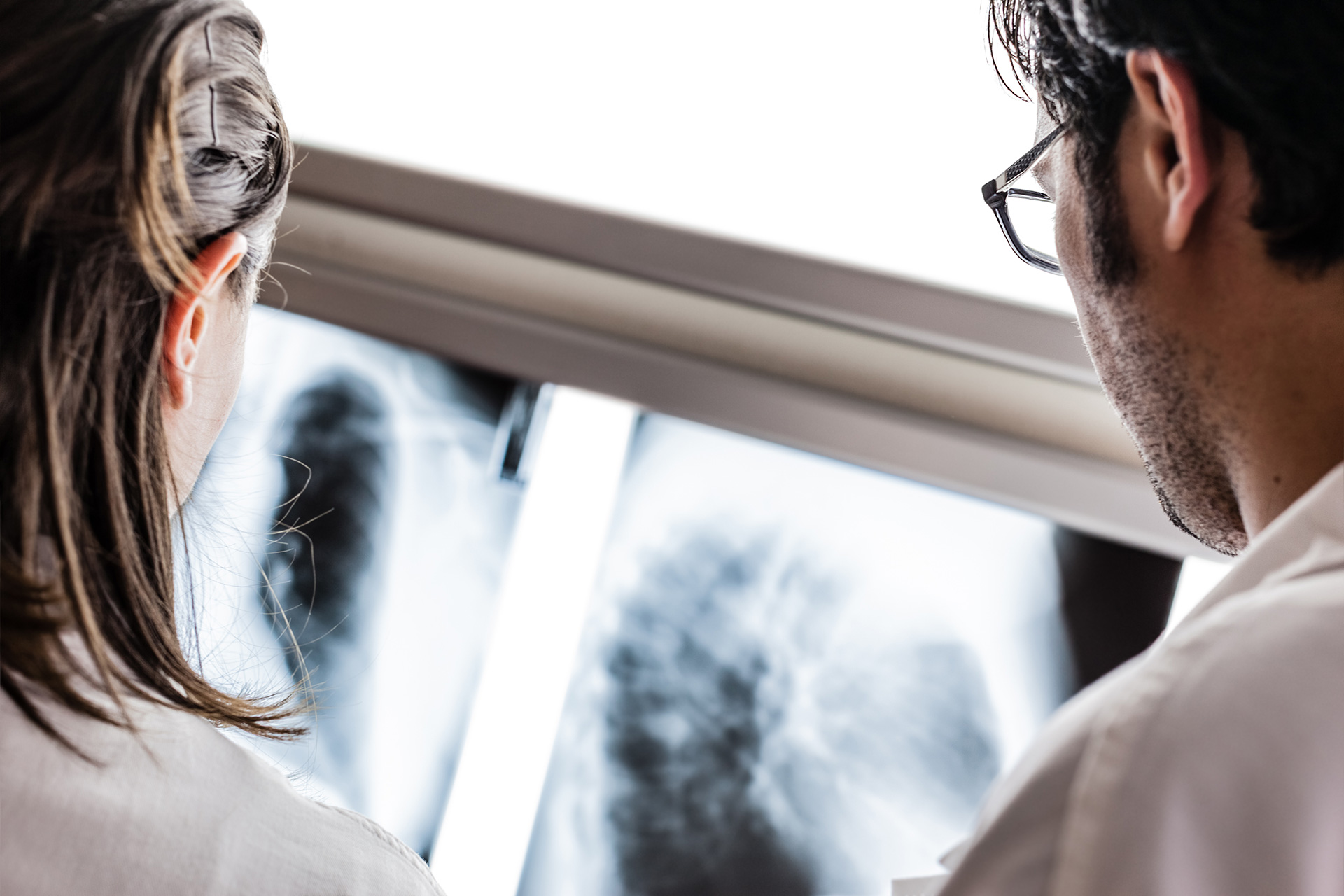Sarcoidosis

What is Sarcoidosis?
Sarcoidosis is an interstitial lung disease that affects lung tissue and often causes fibrosis (scarring). Inflammation from sarcoidosis can make it difficult to transport oxygen (and carbon dioxide) into the bloodstream, causing injury or thickening of the walls of the lungs.
What are the Symptoms of Sarcoidosis?
Symptoms of sarcoidosis can vary depending on the relevant organs:
In the lungs: persistent cough, chest pain, and shortness of breath (these are the most common symptoms of the disease)
On the skin: rashes, change in the color of the skin
In the brain: Bell’s palsy, numbness or tingling in the arm or leg
On the eyes: blurred vision, painful red eyes
In the bone: bone pain
In the bone marrow: anemia
In the heart: abnormal heart rhythm (may cause sudden death)
What you should know about sarcoidosis:
About two-thirds of the new-diagnosed sarcoidosis patients get better spontaneously (or with medication) in 1-2 years.
The lungs are affected in more than 90% of the patients with sarcoidosis, because the disease is thought to be triggered by inhalation of some possibly unknown irritants.
There is also a genetic predisposition to developing sarcoidosis.
Once lung scars occur, they are often irreversible.
How is sarcoidosis diagnosed?
There is an increase in the number of cases diagnosed; However, the disease is still considered a rare disease. We take a comprehensive history, and make a physical examination to diagnose sarcoidosis. It is important to review past medical records and previous biopsy slides and imaging studies, if any. If we are concerned that sarcoidosis may affect other organs, special examinations such as MRI may be requested to check for inflammation in the brain. Sarcoidosis is most often identified on a chest x-ray or CT scan. Usually, enlarged lymph nodes appear on a chest x-ray. Sometimes there may be some changes in the lungs that look like pneumonia, but do not improve after antibiotic treatment. The diagnosis of sarcoidosis is confirmed by excluding the causes that may cause sarcoidosis-like granulomas such as fungal infections, bacterial infections, lymphoma or vasculitis (inflammation of the blood vessels.)
How is sarcoidosis treated?
Sarcoidosis for most patients is a mild disease that usually does not require treatment. Steroids are the most common used medicines. Most treatments are done on an outpatient basis. If there is a serious lung damage, a lung transplant may be considered.
